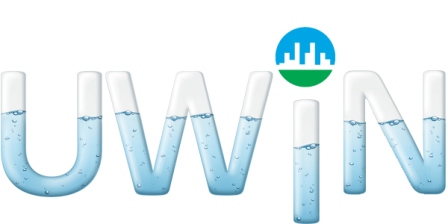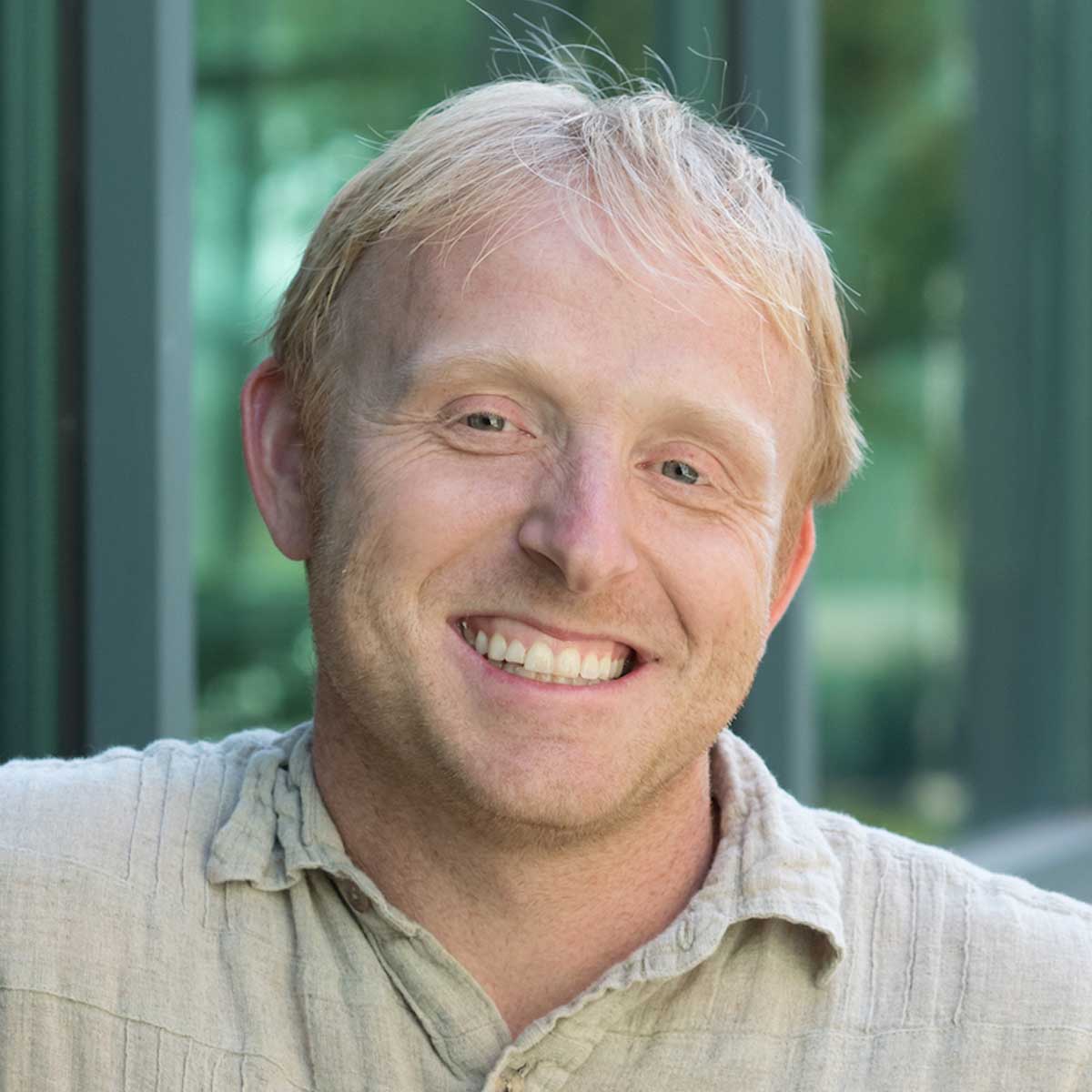Project C4-1: Financial models and strategies to support the transition to One Water
Alexander Maas, PhD
University of Idaho
Agricultural Economics and Rural Sociology
Neil Grigg, PhD
Colorado State University
Civil & Environmental Engineering
Financial flows comprise an important strand of connectivity among urban systems, and water service providers seek to implement One Water approaches, they face barriers caused by current financial and legal structures inherent in the service provision model used by public utilities. Implementation of One Water requires a transition from this service provision model to one that recognizes water as a valuable total resource that is essential to community livability. The One Water business model should be based on managing water as a resource in forms that range from natural sources through water and wastewater systems, as well as stormwater and recycled water systems. It should harmonize the separate approaches of the service model, recognize the full value of water in its diverse uses, and promote a sustainable approach based on the triple bottom line, affordability and equity. It will also support moves toward a circular economy, use non-traditional revenue sources and involve the private sector as well as government. 
The focus of this project is on the financial systems that control urban water services. The goals of the project are to discover the financial connectors and levers that control how services are offered and to create strategies to integrate financial sources and decisions to promote One Water. To achieve these, the project will develop systems concepts and models to focus on financial flows and states. Ultimately, it seeks long term strategies to make fundamental changes as well as near term payoffs for UWIN stakeholders.
At its core, One Water in an urban setting relies on the integrated management of all water services, including water supply, wastewater, stormwater and recycled water. The benefit of taking the One Water approach lies in efficient use of natural resources and infrastructure.
An expanded concept of One Water involves co-benefits and extends its meaning to include integration with other urban sectors, such as in use of green infrastructure to create livability enhancements in cities through urban gardens, open space and enhanced ecological systems. This expanded concept is more difficult to finance than the basic concept because: 1) it may not be supported by stakeholders with different value sets; and 2) it cannot be financed normally thru fees based on cost-of-service.
This project will explore the perspectives of One Water and outline the current financial model for separate services and the extent of their integration. It will identify instances where the current model works well and challenges it poses to the One Water model. Based on these, it probes four lines of analysis about One Water: governance, financial strategy, economic soundness and public support. Based on these, it proposes a path forward to study the major questions and integrate answers toward more effective implementation of One Water.
DATA NEEDS
- Rate Information
- Demographic Information
- Debt levels and Bond Rates
- Livability Index similar to https://livabilityindex.aarp.org/
- Insurance Rates and FEMA Data
- Certified Financial Annual Report (CAFR) for participating utilities
APPROACHES & ACTIVITIES
| Economic model of One Water approach | The model is expected to identify benefits to stakeholders and incentives to them to support One Water. It will include valuation of benefits and impacts across stakeholder groups and subsystems of the One Water integrated system. |
| Assessment of stakeholder impacts | This component will consider individual stakeholders (customers) and organizations, including utilities and potential partners in One Water. The project will take advantage of surveys planned under other UWIN project C2-1, and map the current financial picture of each of the six regions to determine gaps and barriers/constraints that confront goals for each region.
|
| Framework financing model | This task will map the integrated urban water system and infrastructure and service programs involved in the One Water model. The goal will be to identify connectors and levers to implement One Water and take advantage of
investment and operating funding to promote One Water, including private sector approaches. It will also identify barriers that constrain flexibility to move toward One Water through coordinated surveys with Project C1-1. |
| Financial strategies to integrate green infrastructure and integrated approaches to fund legacy gray infrastructure | Conceptualize new public and private financing approaches to overcome barriers
Test the proposals in the six regions Concepts to be included: Price of Government Competitive Bidding for services – Funding of Cities Offer an integrated approach to provide funds for long term care of legacy infrastructure. Offer sustainable financial strategies to finance stormwater and green infrastructure in the long term. Offer a financial model and tools to value One Water approaches and modify conventional mindsets to foster integration. Conceptual model of urban financing and how it links to water system elements Integration of green infrastructure financing into urban mode Financing solutions for aging infrastructure issues l Tool for use to use urban water plans as drivers of comprehensive plans |
| Affordability analysis | In coordination with Project A1-2, this task will assess affordability programs to learn how they may expand possibilities to use rates and fees for investment in infrastructure. Also the potential of using federal and state funds or other sources to address water programs and generate positive economic and social impacts to communities. |
Journal Articles
- Awad, K., Maas, A., & Wardropper, C. (2021). Preferences for Alternative Water Supplies in the Pacific Northwest: A Discrete Choice Experiment. Journal of Water Resources Planning and Management, 147(4), 04021007. https://doi.org/10.1061/(ASCE)WR.1943-5452.0001342
- Burton, K., A. Maas, and K. Lee. 2022. “The Temporal and Spatial Extent of Property Value Losses Following a Freshwater Chemical Spill”. Journal of Agricultural and Resource Economics. https://jareonline.org/articles/a-case-study-in-contamination-persistent-home-value-losses-associated-with-the-elk-river-spill/
- Flyr, M., Burkhardt, J., Goemans, C., Hans, L., Neel, A., & Maas, A. (2019). Modeling Commercial Demand for Water: Exploring Alternative Prices, Instrumental Variables, and Heterogeneity. Land Economics, 95(2), 211-224. doi: 10.3368/le.95.2.211 http://le.uwpress.org/content/95/2/211.abstract
- Grigg, N. (2017). Affordability Programs for Water Utilities. Water Finance and Management. February 8, 2017: https://waterfm.com/water-customer-assistance-programs-affordability/
- Grigg, N. S., Connor, T., & Maas, A. (2017). Financing Integration of Urban Water Systems: From Service Provision to Resource Management. Public Works Management & Policy, 1087724X17732789. https://doi.org/10.1177/1087724X17732789.
- Grigg, Neil, Maas, Alexander, Connor, Theresa. Can One Water Programs Do More With Less? Water Finance and Management, August 2017. https://waterfm.com/can-one-water-programs-less/
- Maas A., Goemans C., Manning D., Kroll S., Arabi M., Rodriguez-McGoffin M., Evaluating the effect of conservation motivations on residential water demand. Journal of Environmental Management, March 2017. https://doi.org/10.1016/j.jenvman.2017.03.008
- Maas, A., Goemans, C., Manning, D., Kroll, S., & Brown, T. (2017). Dilemmas, coordination and defection: How uncertain tipping points induce common pool resource destruction. Games and Economic Behavior, 104.https://doi.org/10.1016/j.geb.2017.06.009
- Maas A., Grigg N., Connor T. What Now? An overview of urban water infrastructure in the USA. Regions 306(2):16 May 2017 https://doi.org/10.1080/13673882.2017.11878967
- Maas, Alexander, Christopher Goemans, Dale Manning, Stephan Kroll, Thomas Brown, Dilemmas, coordination and defection: How uncertain tipping points induce common pool resource destruction, Games and Economic Behavior, Volume 104, 2017, Pages 760-774, ISSN 0899-8256, http://dx.doi.org/10.1016/j.geb.2017.06.009.
- Maas, A., Goemans, C., Manning, D. T., Burkhardt, J., & Arabi, M. (2019). Complements of the house: Estimating demand-side linkages between residential water and electricity. Water Resources and Economics. https://doi.org/10.1016/j.wre.2019.02.001
- Maas, A., C. Goemans, D. T. Manning, J. Burkhardt, M. Arabi (2020) Complements of the house: Estimating demand-side linkages between residential water and electricity, Water Resources and Economics, 29. https://doi.org/10.1016/j.wre.2019.02.001
- Puri, R., & Maas, A.(2020). Evaluating the sensitivity of residential water demand estimation to model specification and instrument choices. Water Resources Research, 56, e2019WR026156. https://doi.org/10.1029/2019WR026156
Updated: November 2022
Theses/Dissertations
- Awad, Koroles (2020). Preferences for Alternative Water Supplies in the Pacific Northwest: A Choice Experiment. MS Thesis – Applied Economics, University of Idaho. Web: https://digital.lib.uidaho.edu/digital/collection/etd/id/1875/rec/1
- Puri, Roshan (2019). Evaluating the Sensitivity of Residential Water Demand Estimation to Model Specification and Instrument Choices. M.S. Thesis – Applied Economics. University of Idaho. Web: https://www.lib.uidaho.edu/digital/etd/items/puri_idaho_0089n_11658.html
Updated: November 2022
Related Materials
This project will be closely coordinated with Project A1-2, Project C1-1 and C2-1
Alexander Maas, PhD – Principal Investigator
Assistant Professor
University of Idaho
Agricultural Economics and Rural Sociology
Email: alexmaas@uidaho.edu
Neil Grigg, PhD – Co-Investigator
Professor
Civil and Environmental Engineering
Colorado State University
Voice: (970) 491-3369
Email: neilg@engr.colostate.edu
When I first came to Colorado State in 1967 as a graduate student, my emphasis was on hydraulic engineering. Over the years I’ve evolved to my current focus on management issues of water resources, civil infrastructure, and pipeline systems. I’m currently involved with other faculty members on projects relating to clean water, hydrologic and ecological systems, and pipeline management. Colorado State has graduates working in leading water positions around the world, and I’m pleased to remain in touch with many of them. I also try to stay involved with business and professional groups to advance the causes of effective water and infrastructure management

